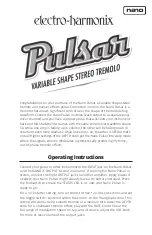
Theory of Operation
B-13
The range of particle diameters removed from the Electrostatic Classifier
not only depends on particle electrical mobility. Knutson [1975] determined
the relationship between the particle electrical mobility and the Classifier
parameters. The relationship is given in equation B-5:
1
2
sh
*
p
r
r
ln
L
V
2
q
Z
Equation B-5
The mobility bandwidth,
, is:
*
p
sh
a
p
Z
q
q
Z
Equation B-6
where:
Z
p
*
= set mobility
q
a
= aerosol flow rate through the Classifier
q
sh
= sheath air flow rate
r
2
= outer radius of annular space
= 1.961 cm (for Long DMA)
= 1.905 cm (for Nano DMA or 1nm-DMA)
r
1
= inner radius of annular space
= 0.937 cm (for Long DMA)
= 0.937 cm (for Nano DMA or 1nm-DMA)
= average voltage on the inner collector rod (volts)
L
= length between exit slit and polydisperse aerosol inlet
= 44.369 cm (for Long DMA
†
)
= 4.987 cm (for Nano DMA)
= 2.0 cm (for 1nm-DMA)
Equations B-4 and B-5 can be combined to give an equation that relates
the particle diameter to collector rod voltage, number of charges on the
particle, Classifier flow rate, and geometry for the Long DMA, Nano DMA
or 1nm-DMA:
1
2
sh
p
r
r
ln
q
3
L
V
ne
2
C
D
Equation B-7
Figure B-6 allows calculation of the particle diameters that pass through
the exit slit of the Electrostatic Classifier, if the number of charges on the
particle is known. Table B-1 shows that the majority of the aerosol in
charge equilibrium exists as singly charged particles. However, a fraction
of the particles exist as multiply charged particles.
†
The length measurement is based on the geometrical value of the distance between the vertical midpoint of the inlet slit and
the midpoint of the exit slit. Traditionally, a value of 44.44 cm has been used. Kinney, et. al. (1991) suggests using a value of
4
3.6 cm as an “effective length” to account for entrance and exit effects. TSI firmware and software uses the value of 44.369
since this is a physically verifiable number.
Z
p
V
Summary of Contents for 3082
Page 2: ......
Page 175: ...Maintenance Service and Troubleshooting 6 33 This page intentionally left blank ...
Page 176: ......
Page 222: ......
Page 224: ......
















































